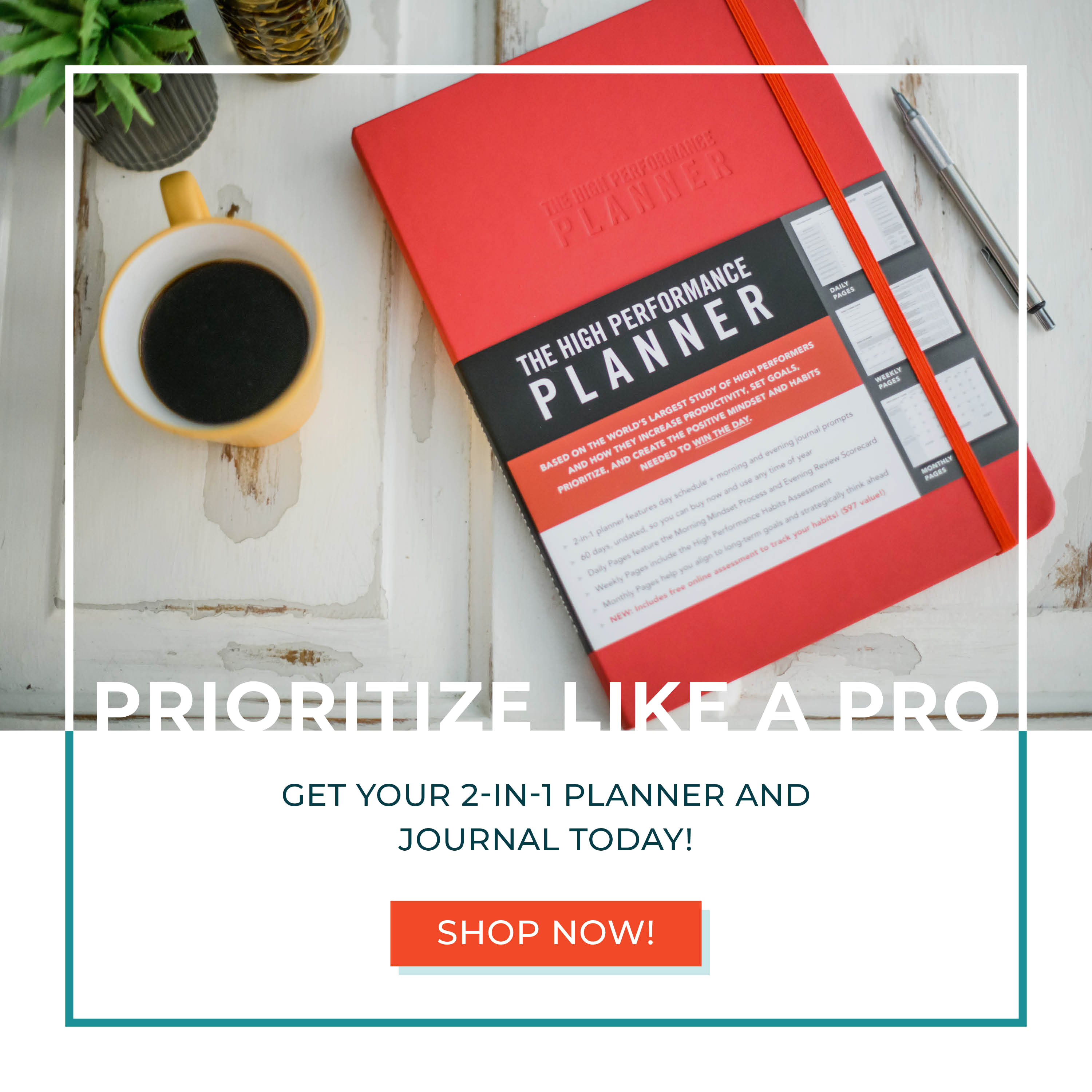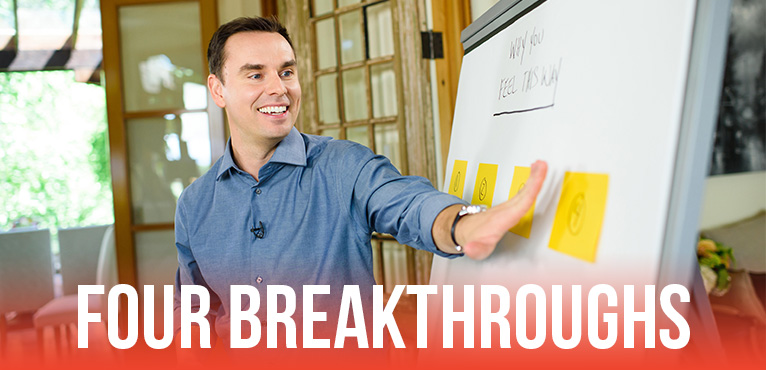SUMMARY
- “If you don’t anticipate the emotions that you’re going to have in stressful situations, I promise the situation is going to win, not you.”
- Everyone faces stressful situations, but how do you deal with them? How can you prepare yourself? Learn how to best anticipate a stressful event, how to better manage your stress, and ultimately take back command of your day.
- “Visualizing is seeing you showing up confident, capable, doing a good job.”
- Watch the video to get the full training.
- If you feel alone in your anxiety and stress, it’s time to reach out to others in your life. When you invite your friends and family into your own journey, you recognize that you’re not alone and there is strength in numbers.
- Have a stressful event on the horizon? Prepare yourself by completing the worksheet for this training here.
- Already have the High Performance Planner and CRUSHING each and every day? Let’s celebrate you! Take a photo with your planner and use #HPXlife or #TeamHPX.
HOT NEWS & DEALS!
-
Free Book!
My blog readers get a complimentary copy of my new book High Performance Habits, while supplies last! I bought 1000 for you – so no charge for the book itself – but I do ask you pay your shipping. While supplies last. Get yours here.
-
8 Online Courses for $10!
My blog readers also get an exclusive $10 trial to access ALL my personal development courses! Click here for the $10 trial. Students call it “the Netflix of Personal Development.” You’ll call it the curriculum that changed your life forever!
-
High Performance Planner!
This is the 2-in-1 planner and journal achievers use to win the day and accelerate long-term success. Get yours here (while supplies last)!
DID YOU KNOW?
I give weekly prizes, gratitude and shout-outs to our students, so post a screenshot or video on Instagram and use #TheBrendonShow! I can’t wait to hear your thoughts about this episode!
RELATED POSTS
How to Visualize and Manifest Bigger Dreams
I’m Overwhelmed
How to Play the Long Game (and Avoid Burnout)
How to Wind Down
How to Unplug without Losing Touch
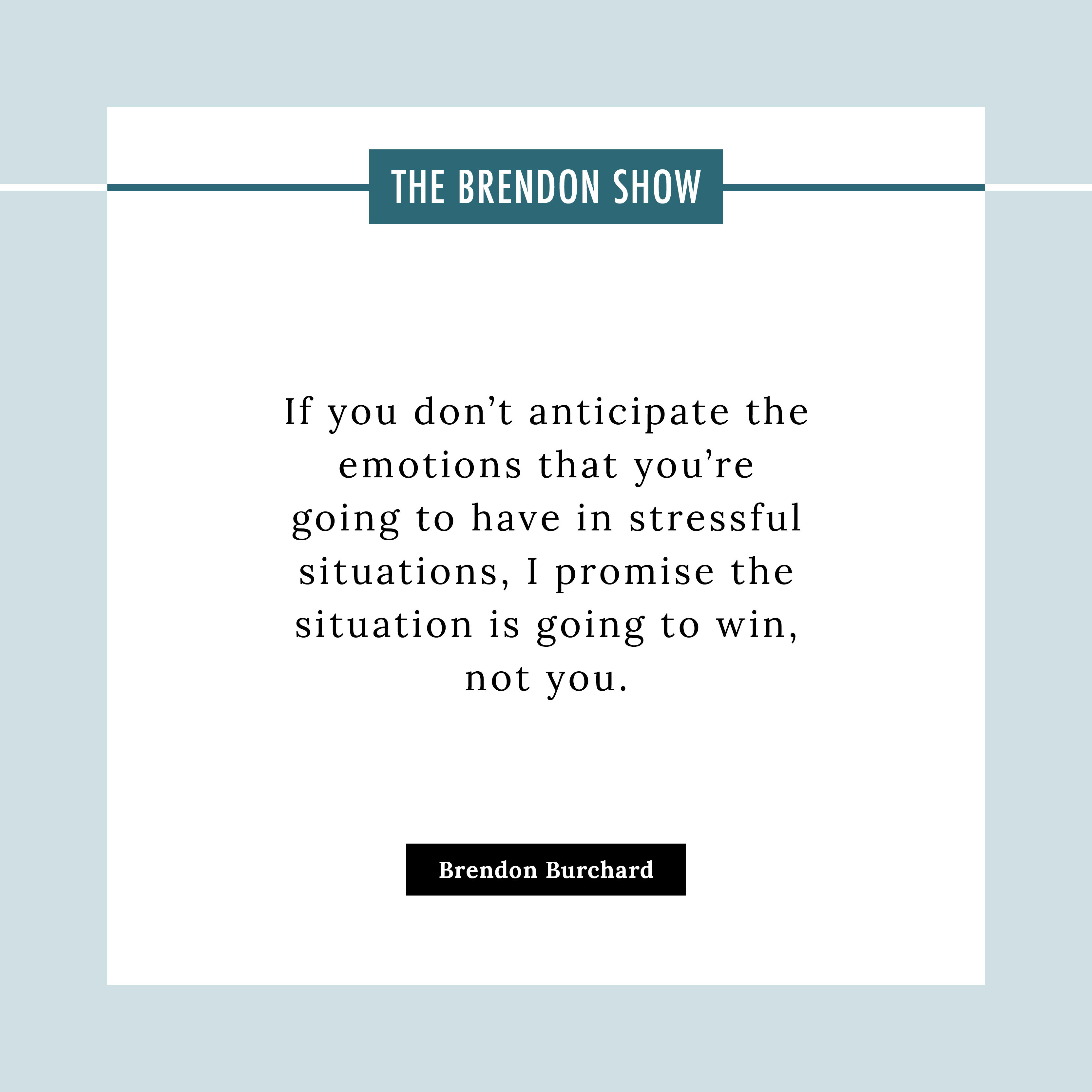
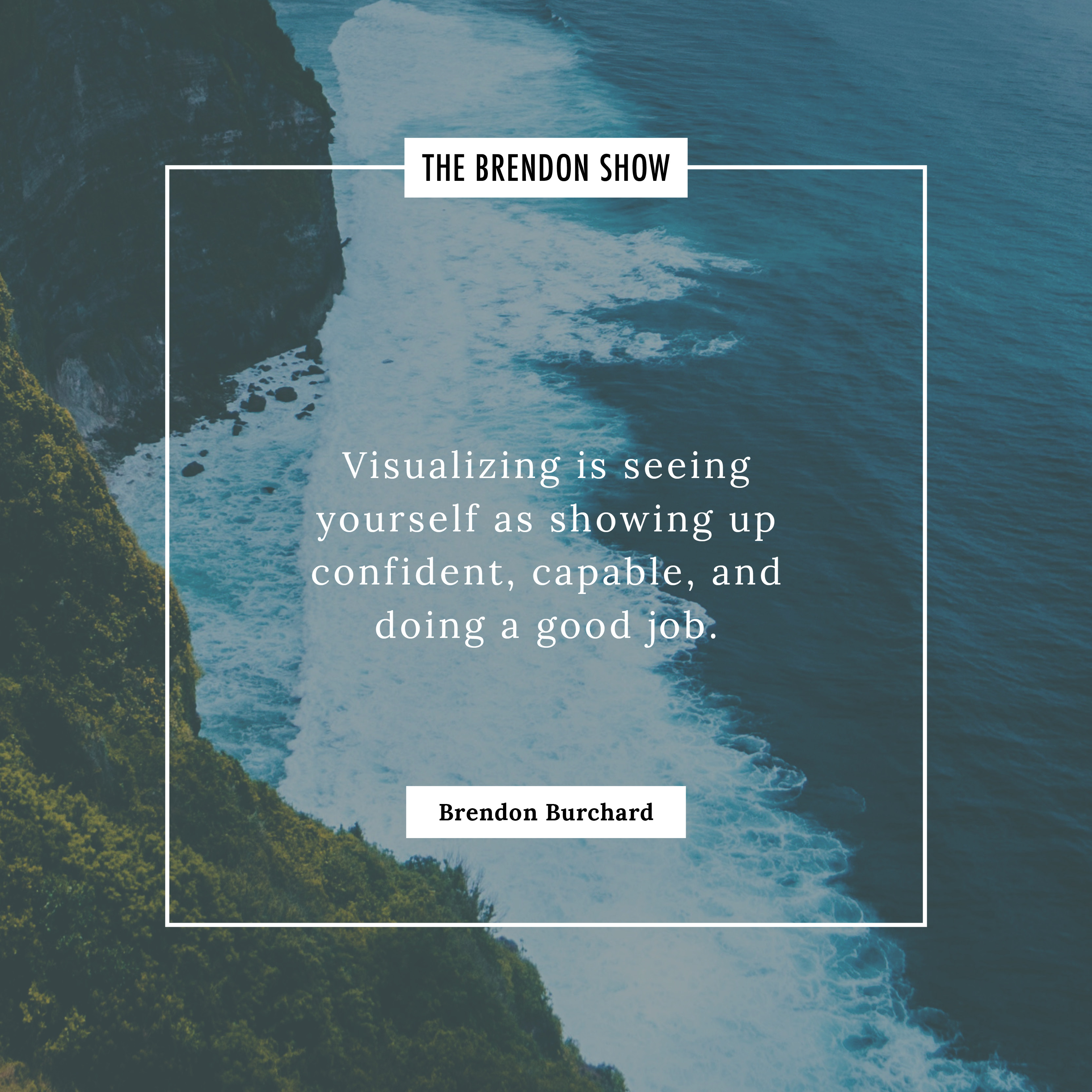
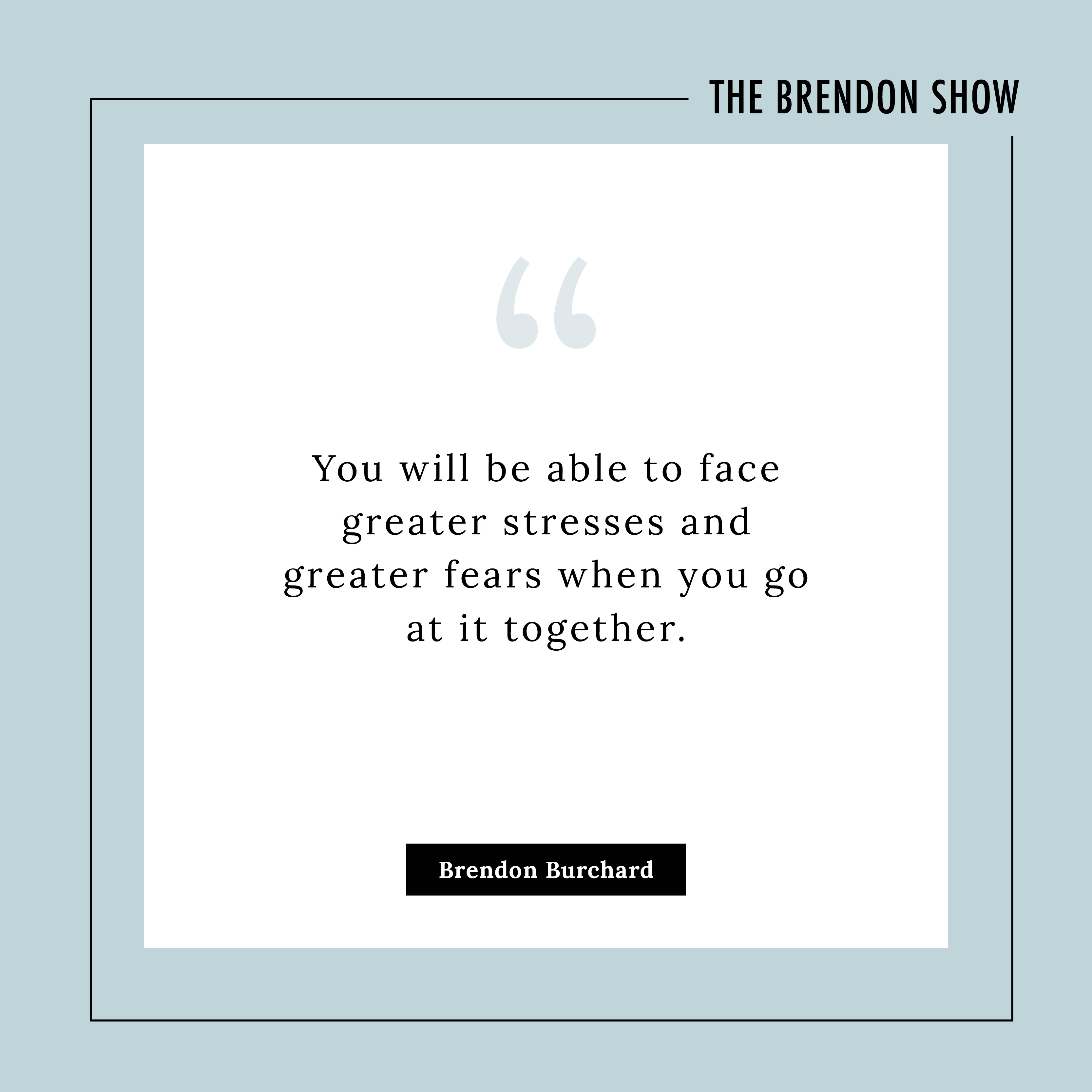
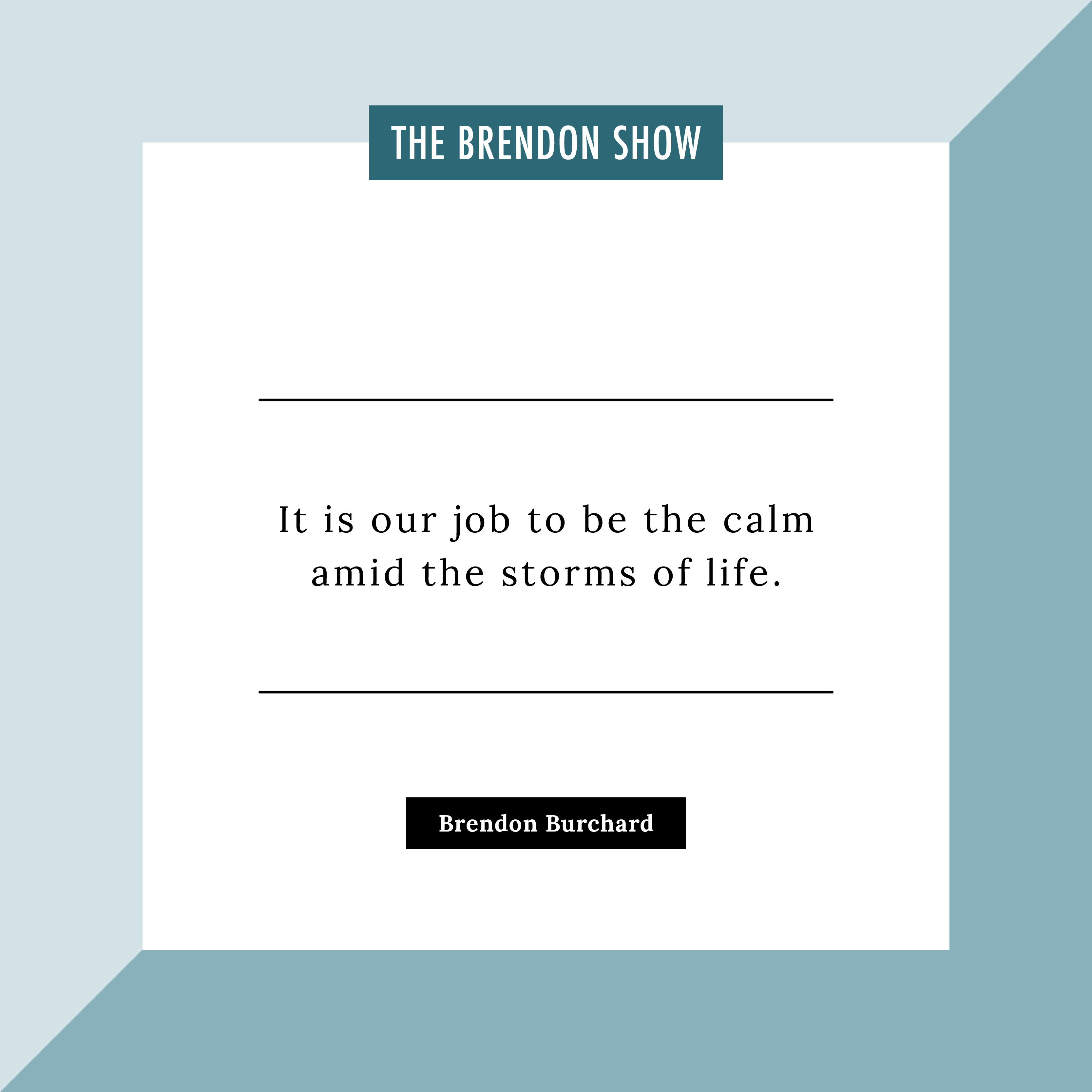
FULL TRANSCRIPT
[The following is the full transcript of this episode of The Brendon Show. Please note that this episode, like all TBS episodes, features Brendon speaking extemporaneously–he is unscripted and unedited. Filmed in one take, The Brendon Show has become one of the most viewed unscripted, direct-to-camera self-help series in the history of YouTube. It has also been the #1 Podcast in all of iTunes and is regularly in the top podcasts in Self-Help and Health categories around the globe. Subscribe to the free motivational podcast on iTunes or Stitcher.)
People ask me, “Brendon, how do you deal with stressful situations so you don’t freak out or have a ton of anxiety and fear leading up to them?” Because maybe you have a big public speaking engagement coming up, or maybe you have that test at school coming up, or maybe you’re about to have that difficult conversation with somebody where you’ve wanted to say something to them, but you’ve been holding back, and you know it’s going to freak you out when you go to tell them the truth. Whenever we’re in situations that we know are going to bring us stress, it really is on us to prepare our absolute best so that A) we deal with them well and we can actually enjoy the experience or go through the experience without freaking out but B) we don’t freak out the energy of everybody else, right?
Because in all of the storms of life, it is our job to be the calm amid the storm.
But that’s hard and that takes skill and that takes training.
So I’ve got four big ideas for you in this Brendon Show episode.
1. Anticipate Difficulties and Ask Others
Number one: Always anticipate and ask others how to deal with stressful situations.
I know that’s a “no—duh” one, but most people do not do that. Right? You’re about to go take your first SAT test ever, what do you do?
Well, you study, you study, you study, you go and you take it. But that’s going to be a stressful situation. Why wouldn’t you first anticipate, ”Wow, that is going to cause a lot of anxiety for me. The days before, the day of—I’m going to be freaking out waiting for my scores.”
Why would you not ask people who’ve already taken it? What did you do the day before the test? To calm yourself down, to get yourself ready? The day of the test, what did you do? When you went in there, did you have a certain breathing pattern? How did you calm yourself down? What did you tell yourself so that you could deal with the situation?
All right, same thing—you’re about to go have a difficult conversation with your spouse, or your partner, or the person you love. Why wouldn’t you ask other people who you know? Be like, “Hey, I’m about to have this difficult conversation. Have you ever had a conversation like that? Oh, what did you say? How did you bring it up?
Like, the idea that so many people in this world go into everyday bumbling into it— I feel sad for them. They’re living a highly reactive life and they’re setting themselves up for incredible failure.
Because if you don’t anticipate the emotions that you’re going to have in stressful situations, I promise the situation is going to win, not you.
So, always anticipate—okay, this is going to be hard. This conversation. This test. This day. This thing. It’s going to be hard. Anticipate it—it will be hard. “Now, who has gone through it before who I can ask how they dealt with it?”
That’s the first strategy.
2. Plan Your Stress Management
Second strategy: I need you to make a pre, during, and post stress-management plan. Huge phrase, friend, I know! But what I think is, “Okay, if I’m going to go have that difficult experience in my life, I’m going to plan, really plan the day before, the day of, and the day after. I’m really going to think through it.”
So let’s say you’re going to have that difficult conversation with somebody you love. Ok, the day before I’m going to say, “Okay. Well the night before, I’m going to ask myself these questions. I’m going to rehearse a little bit. The morning of, I’m going to breathe. I’m going to close my eyes. I’m going to visualize it going just fine, everything is going to be fine. If they say this, I’ll say that.” In other words, I’m going to role play it in my mind, over and over and over again. And afterwards, “Oh! How would I follow up with them to make them feel good? How would I follow? Or what would be my next right steps after that?” Right?
I have a friend right now who is just an unbelievable professional rock-climber. Right? And this person was going to go climb one of the hardest climbs in the world. And I said, “Man, that would terrify me because I hate heights. How did you prepare for that? He says, “Oh, well you know my regular routine is like this.” I said, “Yeah, but what do you do the day before?” And he had like five or six things he did, the day before to get himself mentally and emotionally and physically ready. Including doing a lot of mobility training, a lot of breathing and calming activities, a lot of visualization, going over his notes about where each hold was. It was unbelievable.
The day of—that morning—he got up, he went through a very basic routine; he had been running for weeks and weeks, but he added other little elements too that he knew he was going to do in advance, including calling his spouse and saying, “I love you, honey.” You know? Because he’s about to climb up a mountain. And then, the day after—because here’s what we often don’t think—stress has a longer shelf life than we think. What I mean by that is—let’s say you go do something and it’s really stressful.
That energy carries with you the next day. So, what can you do the next day to calm yourself down? For example, many of you guys have been to my seminars before out in the world, right? Maybe you come to High Performance Academy, or HPX, or
Influencer, or one of our big programs. And I know that delivering that training, it takes four days of my life. I’m on stage anywhere from seven to 14 hours a day, depending on the event, and standing up that whole time. Delivering that seminar is one of the hardest things I do in the world.
Well, guess what? I’ve got to plan my stress-management after that, because after it, my adrenals are all blown out, I’m exhausted, and I’m thinking, “Ok, I’ve got to recover from this.” So, I plan my recovery well in advance of that situation.
So, what can you do before, during, and after to put yourself in a good place, so that you can really deal with the stress?
3. Visualize and Role Model
Number three: I do need you to visualize and role model over and over and over again. I know I reference this a little bit when I talk about what to do during the stressful situation or the day of. I think it’s incredibly important that if you know you have something stressful coming up, that you visualize it, over and over and over again. That you play it in your mind over and over and over again. But here’s the difference, okay?
Fear mongering or worrying is thinking about it and seeing it go bad every single time.
Visualizing is seeing you showing up confident, capable, doing a good job.
Confident, capable, doing a good job. I want you—every single time—visualization should be a positive thinking exercise, where you’re seeing the situation and you’re seeing yourself handle it well. But you’re also noticing the things that are difficult. What if they say this or what if they say that? And you’re kind of like, scenario-planning. If she says this, then I’ll say that. If he does this, then I’ll do that. But keep the momentum going and visualize the thing all the way through, right?
My friend, the rock climber, he doesn’t just visualize the start of the climb. He visualizes the entire climb until he’s standing on top of the rock and there’s success. So I want you to visualize the entire scenario.
What most people do is, they visualize a little bit of the scenario, they feel anxiousness and worry, so they stop visualizing. Or they catastrophize. They start seeing it going bad, bad, bad, and they never walk the entire thing through. Right? I want you to walk the entire thing through. See the entire thing and force yourself to see it going well.
Force yourself to see it going well.
Then I want you to pair it with role modeling. I want you to call up a friend, call up somebody else you know, say, “Hey, I’m about to have this conversation. I’m about to go do this thing. Uh, can I ask you some questions and try this out?” Sound it out, act it out, explore it with other people.
There are very few things I do in my life that I haven’t already talked with somebody through; right before my meetings, before my conversations, before all my online courses, I’ll sit down and literally try out the words on people. “What do you think of this? What do you think of that?”
And I’ll get feedback from them and that makes me think more deeply about it. And when I think more deeply about it, suddenly the stress isn’t so front of house. Because in my mind, I’m already prepared. Like preparation can get rid of a lot of stress. But role-modeling puts you in that actual environment where you’re doing the thing. Then when you show up you’re like, “Wow, my mind has seen this a thousand times. I’ve already talked and acted it out, let’s go!” And now it’s not so stressful.
4. Enroll Your Friends
Fourth big idea: Enroll your friends. If you’ve got something coming up, like your SATs, your ACTs, a test—create study groups. Don’t go it alone. Create a study group with some friends where you guys create a regular schedule where you’re studying and you’re getting ready together. Right? That camaraderie of things. Same thing—if you’re going to go run a marathon and it’s going to be this big scary thing, it’s your first marathon ever. If you’ve been running with a group of people, they know by science that no doubt, you will perform better and less anxiously because you’ve prepared with other people.
Almost everything you do in your life, you should think: How do I enroll friends or find peers to do this with so I stay on the journey? When you have friends or others involved, we know from social sciences that you’re more likely to stay committed, stay consistent, and succeed.
But, guess what?
We’re in a society of selfies where we only think of ourselves, and we only—like, because we’re scared to ask for help, or be vulnerable and say, “I don’t know,” we do everything ourselves. And everything I ever do, I literally sit down—here’s my goal list. Anytime I write down goals, I don’t just write down, ‘When is it going to happen? What’s my next step? When is the deadline?’ Instead, I also write next to it, and I say, “Who can I enroll with me on this goal?”
Get people enrolled with you in your goals. Get people enrolled with you, so you can role play with them, ask, participate. Go through it with them, it’s not so scary.
I know you know this if you’ve ever been to the county fair. I’m from Montana, so we always had the county fair, and there’d be these big, huge, scary rides when I was a kid. I never went on a ride by myself as a kid. Never once. I’d go grab my buddy and be like, “Hey! You’re coming along with me.” And he’d go, “What, are you kidding? I’m not going to!” He didn’t want to go. I didn’t want to go. But when we said, “Let’s go together,” we got on that zipper, we got flipped around and kicked around, and we loved it. And we only did it because we did it together.
You will face greater stresses and greater fears when you go at it together.
I hope this serves you, my friend. I want to thank you again for being part of our HPX community. I love having you guys here.
HPX stands for the High Performance Experience. It just means, you know what, there’s another level of life experience available to you when you prepare, when you think things through, when you challenge yourself to be your absolute best, when you show up each and every day, and you say, “I’m going to be vibrant today.
I’m going to be connected to other people. I’m going to make a difference.” And I know that’s why you’re here, so thank you for being here.
Make sure you subscribe. Share this video with somebody going through a stressful situation today. I’ll see you next time.
